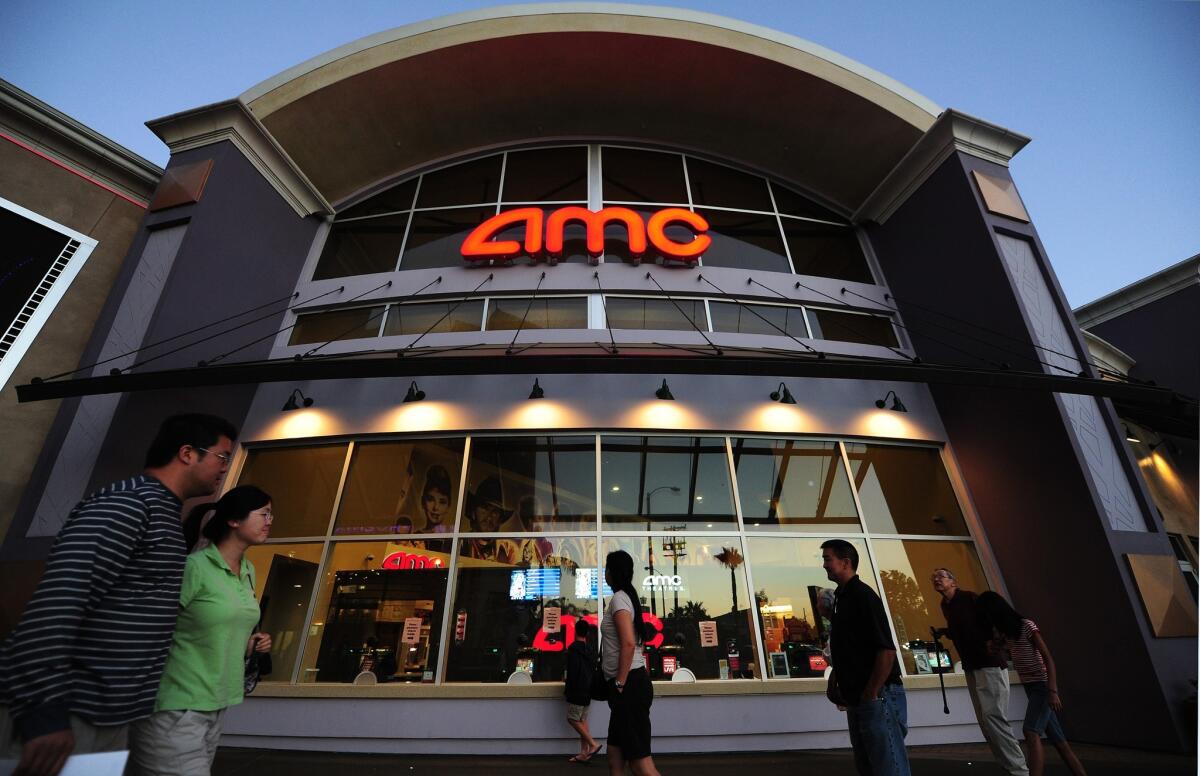Justice Department to throw out decades-old film business regulations. What effect will it have?

- Share via
The so-called Paramount decrees — the regulations that have governed Hollywood since the heyday of Marilyn Monroe and James Dean — are taking their final bow.
The U.S. Justice Department has moved to end the longstanding consent decrees, which lay out rules for the distribution and exhibition of motion pictures, as part of the department’s broader effort to scrap regulations it views as obsolete. Some worry the action could make life more difficult for smaller theater chains and mom-and-pop movie houses that are already dealing with a challenging film market.
The decrees, a series of settlements entered between 1948 and 1952, made sweeping changes in the movie industry by breaking up Hollywood’s monopoly on production, distribution and exhibition. Those settlements followed a landmark Supreme Court case in which the justices found the studios had illegally conspired to fix prices and monopolize the distribution and theatrical markets.
The antitrust division will soon ask the court to toss the decrees, except for a two-year sunset period on bans of certain practices, Makan Delrahim, the Justice Department’s top antitrust official, said during Monday remarks at an American Bar Assn. conference in Washington, D.C.
“As the movie industry goes through more changes with technological innovation, with new streaming businesses and new business models, it is our hope that the termination of the Paramount decrees clears the way for consumer-friendly innovation,” Delrahim said, according to a transcript of his prepared speech.
The termination of these arrangements has been a focus for Delrahim since he joined the Department of Justice, as he looks to get rid of regulations he believes are no longer relevant, said Cornell law professor George Hay, former chief economist at the Justice Department’s antitrust division.
“I think he’s convinced that the movie industry has changed enough,” Hay said.
The department opened its review of the film business regulations in August 2018, suggesting that rules were antiquated.
When the regulations were enacted, movie theaters had a single screen that could be dominated by one studio in a geographic area, the department said. Today, cities have multiple competing cinemas with many screens populated by movies from every studio, and consumers now have more choices when it comes to entertainment.
Further, the biggest studios are owned by conglomerates that are creating streaming services to compete with Netflix. Disney just launched its Disney+ streaming service this month, and Warner Bros. parent AT&T is planning to debut HBO Max in May.
The review raised concerns among smaller theater owners who are struggling to survive in a consolidated industry that is increasingly dominated by a handful of chains. In comments sent to the Justice Department, the National Assn. of Theatre Owners, which represents cinema owners, said ending certain regulations could harm its members.
One example is the ban on “block booking,” in which studios licensed their movies to theaters in groups, essentially telling cinemas they had to take the studios’ likely flops if they wanted the hits.
“Abandoning the prohibition on block booking will likely reduce competition and incentivize anti-competitive behavior,” the organization said during the DOJ’s public review last year.
Other curbed practices included entering into single licenses to cover all theaters in a circuit, known as “circuit dealing,” and the tactic of granting theaters exclusive access to movies in a specific geographic radius, known as clearances.
The department’s recent deregulatory moves mark a reversal from a few years ago, when the government tried to aggressively enforce restrictions on such clearances, which small theater chains say allow larger companies to muscle them out.
Some were skeptical of the department’s move. “The decree has no harmful effect on competition and in fact provides important rules to protect competition,” said David Balto, Maryland-based anti-trust attorney. “And I think a court is going to be quite skeptical about the DOJ action.”
However, the effects of the impending changes may not be as big as they appear. The rules apply only to studios that were sued by the department in the original antitrust cases, according to legal experts. Walt Disney Co., currently the industry’s dominant studio, was not a party to the litigation or the resulting settlements, for example.
Companies including Netflix, Apple and Amazon, which are now big players in film, didn’t exist at the time, and therefore aren’t affected.
The most famous result of the Paramount decrees was that studios that owned cinemas were forced to divest their theaters. After that, those studios were barred from owning exhibitors in the future.
However, the ban on studios owning theaters eventually thawed. In the early 1980s, Columbia Pictures (now Sony Pictures) acquired a minority stake in Walter Reade Organization. Paramount Pictures and Warner Bros. owned the Mann theater chain for many years.
Disney has long owned the El Capitan, which it uses to show its movies and host special events. Netflix is still in the process of acquiring the famed Egyptian Theatre on Hollywood Boulevard from American Cinematheque, and has already started exhibiting its movies there, including Martin Scorsese’s “The Irishman.”
More to Read
Inside the business of entertainment
The Wide Shot brings you news, analysis and insights on everything from streaming wars to production — and what it all means for the future.
You may occasionally receive promotional content from the Los Angeles Times.












